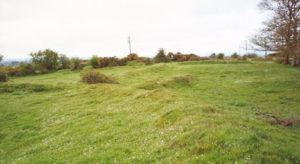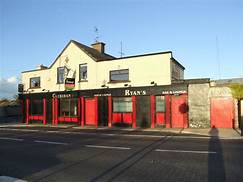The surname Uí Cléireacháin which literally translates into English as “little clerk” has two distinct origins one in Meath which has been anglicised as Clerkin, Clarkin or Clarke and is today mainly found in County Monaghan.
The other origin of the surname Uí Cléireacháin, sometimes anglicised as Clerkin, Clarkin, Clarkeson and Clerihan, is in Munster and they were a branch of the Fidhghéinte tribe whose original territory was in the area of present day County Limerick.Other clans descended from the Fidhghéinte are the Uí Donnabháin (O’Donovan),)UíCuileain (O’Cullanes, Collins, Cullen), Uí Cinnfhaolaidh (O’Kinneallys) and the Mac Inneirghe (McHenrys).

They were closely allied to the Eoghanacht, coming later to be regarded as a branch of that tribe, of whom they were twice kings (in 796 and 909). The Uí Cléireacháin clan were settled in east Limerick which later became the barony of Coshma and were styled in the 11th Century as a “Lords of the Ui Fidhgeinte” and as lords of Ui-Cairbre living in Drumain-Ui Cleirchen, Clerkin’s Ridge, in the barony of Coshma, Limerick, near the present town of Dromin.
They became embroiled in the power struggle between the Dal Cais of TuathMumhan (Thomond) and the Eoghanacht in the 11th Century and after the battle of BrughRigh (Buree) in 1080 some of the Uí Cléreacháins moved to Tipperary where they established Ballyclereachain (Ballyclerihan) which they held until the coming of the Normans.
The Fidhghéinte clans long with the many of the Eoghanact clans such as the Mac Carthaighs were dispossessed of their lands in the 12th Century after the conquest of east and central Munster by the Norman Fitzgeralds. As a result some of the Fidhghéinte clans such as the Uí Donnabháin moved to south-west Cork.
The Uí Cléireacháin remained in the barony of Coshma but spread eastwards into the nearby barony of Coshlea and as time many moved into south Tipperary and North Cork.

However by the time of Griffith’s Valuation in the mid 1850s many of the name Uí Cléireacháin has been rendered Cleary in the survey. Thus it is very difficult to distinguish those Uí Cléirighs from south Galway of the Hy Fiacrach Aidne who sought refuge from the Norman DeBurgos into the neighbouring lands in Munster from those Uí Cléireacháins who too sought refuge from the Norman conquest of Munster.
